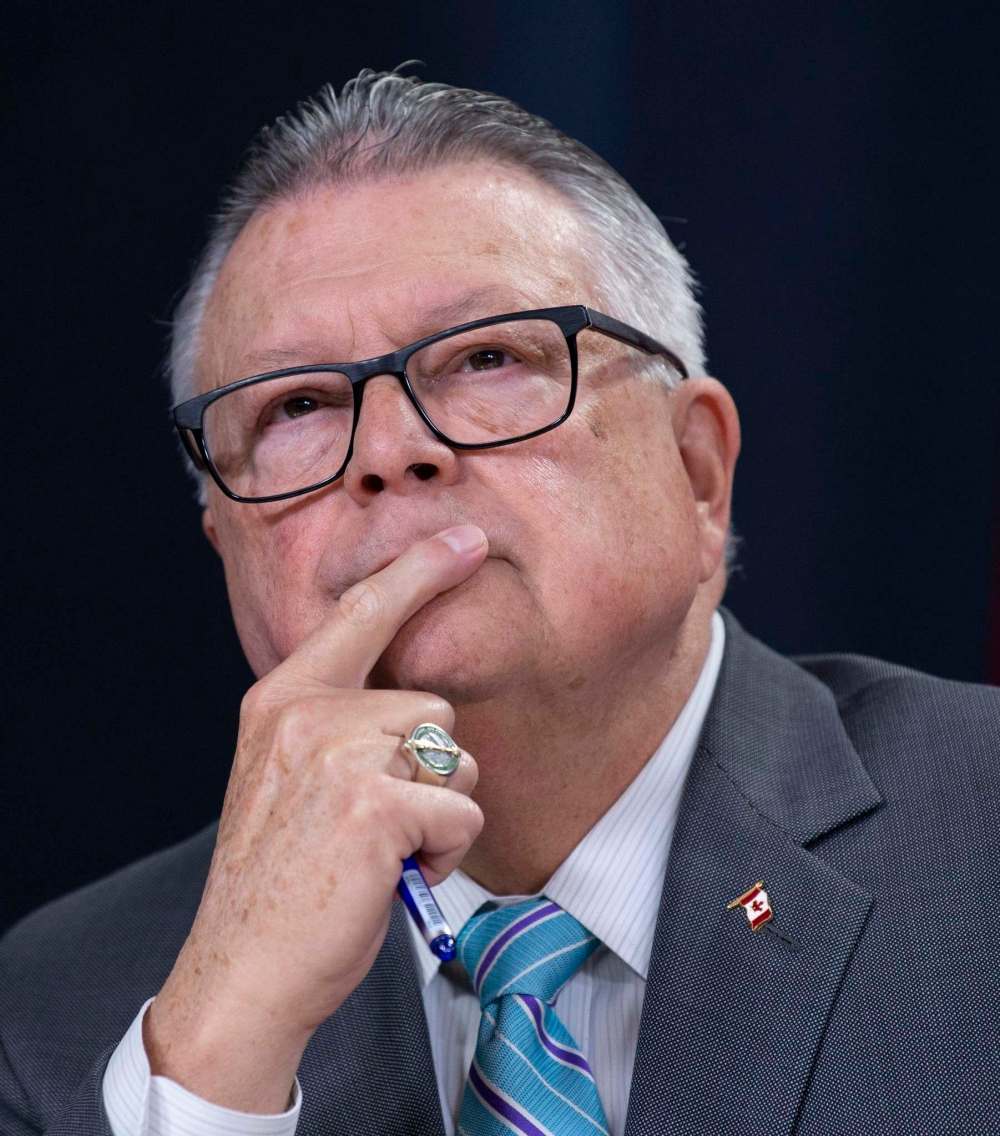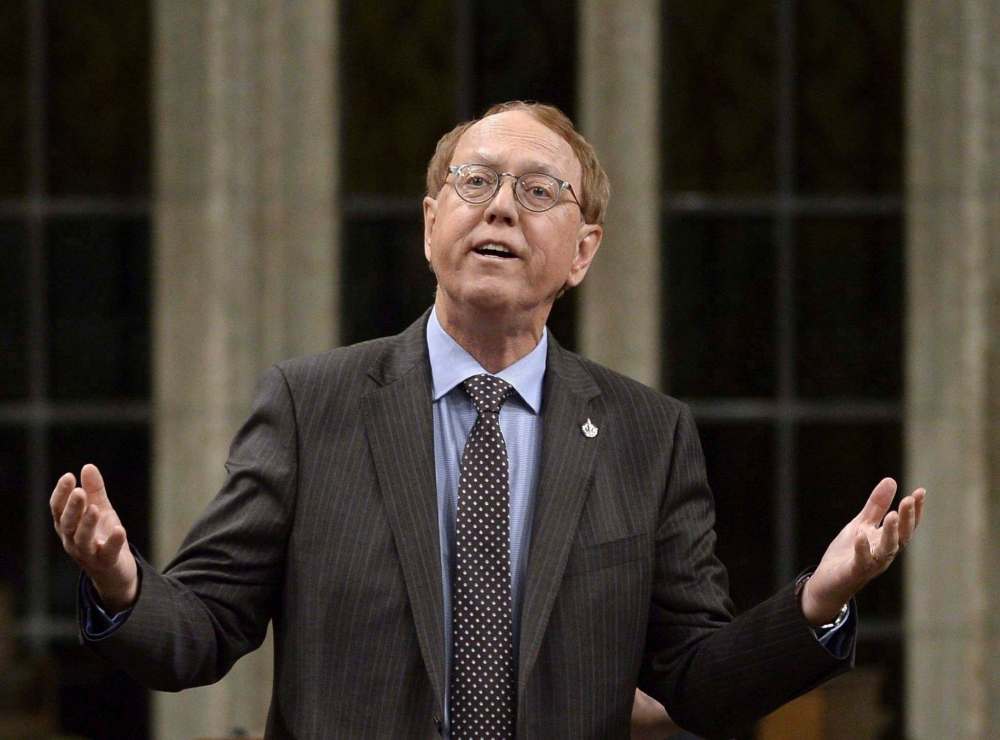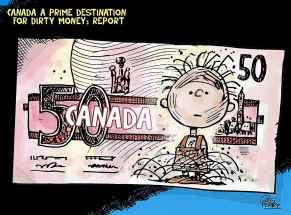Promised pardons for possessing cannabis remain uncertain
Read this article for free:
or
Already have an account? Log in here »
To continue reading, please subscribe:
Monthly Digital Subscription
$0 for the first 4 weeks*
- Enjoy unlimited reading on winnipegfreepress.com
- Read the E-Edition, our digital replica newspaper
- Access News Break, our award-winning app
- Play interactive puzzles
*No charge for 4 weeks then price increases to the regular rate of $19.00 plus GST every four weeks. Offer available to new and qualified returning subscribers only. Cancel any time.
Monthly Digital Subscription
$4.75/week*
- Enjoy unlimited reading on winnipegfreepress.com
- Read the E-Edition, our digital replica newspaper
- Access News Break, our award-winning app
- Play interactive puzzles
*Billed as $19 plus GST every four weeks. Cancel any time.
To continue reading, please subscribe:
Add Free Press access to your Brandon Sun subscription for only an additional
$1 for the first 4 weeks*
*Your next subscription payment will increase by $1.00 and you will be charged $16.99 plus GST for four weeks. After four weeks, your payment will increase to $23.99 plus GST every four weeks.
Read unlimited articles for free today:
or
Already have an account? Log in here »
Hey there, time traveller!
This article was published 21/02/2019 (2488 days ago), so information in it may no longer be current.
The federal government’s legislation to expedite the pardons process for Canadians convicted of cannabis possession is nowhere to be seen, more than four months after the drug was legalized for adult recreational use.
Senior Liberal ministers announced the marijuana pardons plan in a legalization-day press conference last October. At the time, Minister of Public Safety Ralph Goodale said the bill would be introduced “very shortly.”
“I would expect it to be in the House of Commons for consideration before the end of the year,” said Goodale.
Goodale’s office confirmed this week that the minister will sponsor the bill when it comes, but would not provide details about when that might be. Declining a request to interview the minister, Goodale’s spokesman offered a statement on his behalf.

“Our government kept our promise to Canadians to legalize and strictly regulate cannabis… While further work is ongoing, our country has come a long way in a short time,” said the statement.
According to details disclosed at the October press conference, the Liberals’ notional pardons bill will make it easier to attain a criminal record suspension for the past crime of simple cannabis possession, as long as the applicant has completed their sentence. The regular $631 fee to apply for a pardon will be waived, as will the five-year waiting period after a sentence is completed.
“That seems like a two-line piece of legislation,” said Toronto-based criminal lawyer Annamaria Enenajor, director of the Campaign for Cannabis Amnesty, which has been calling on the government to pass amnesty legislation for past marijuana convictions.
“Why hasn’t it been tabled?”
Enenajor said the holdup for Goodale’s cannabis pardons bill shows the issue isn’t a government priority. But an amnesty plan is critical for people with past pot possession convictions, she said.
“Because people need to make plans for their future, and they need to be able to know when they can expect their circumstances to change, especially when there’s something so large looming over their heads as a previous criminal conviction.”
Enenajor said the Campaign for Cannabis Amnesty supports Bill C-415, a private member’s bill put forward in October by NDP MP Murray Rankin. That bill would go further than the Liberal’s proposed approach, allowing the Parole Board of Canada to completely expunge the criminal records of people previously convicted of certain cannabis-related crimes. (An expungement amounts to erasing a criminal record entirely, an approach taken by the Liberal government with Bill C-66, which permitted the expungement of past criminal convictions for consensual homosexual sex.)
Rankin was unavailable for an interview on Thursday. By email, he wrote he was “incredibly disappointed, but, unfortunately, not surprised” that the Liberal government hasn’t yet tabled its cannabis pardons bill.
The NDP MP for Victoria said his expungement bill is due for debate and a vote in March or April, and that he’d be happy for the Liberals to work with him on the legislation.
“It’s my belief that expungement is a better way forward,” wrote Rankin.

“This allows people to honestly respond to any question, ‘I have never been convicted of a criminal offence.’ This is important because we have heard from stakeholders at the John Howard Society and the Elizabeth Fry Society that this would provide the most protection possible for individuals against discrimination.”
Although the Campaign For Cannabis Amnesty prefers Rankin’s expungement approach, director Annamaria Enenajor said the campaign would still welcome a bill that eases the pardons process for cannabis convictions.
“Any step in the direction of getting people to have fewer consequences as a result of sentences relating to cannabis possession that they’ve already served would be welcomed by us,” she said.
“We need to get this done, because the story of what Canada can do through legalization is not over,” added Enenajor.
“And it won’t be over until we address the historical harms caused by cannabis prohibition in a meaningful way. So we need to stop dragging our feet and start focusing on that, because those stories represent the most vulnerable and marginalized people who have been affected by cannabis prohibition. And we need to do right by them before patting ourselves on the back.”
solomon.israel@theleafnews.com
@sol_israel










